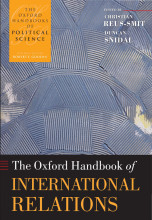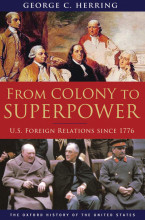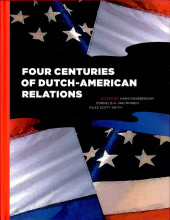Summary: The Oxford Handbook Of International Relations | 9780199585588 | Christian Reus Smit, et al
- This + 400k other summaries
- A unique study and practice tool
- Never study anything twice again
- Get the grades you hope for
- 100% sure, 100% understanding
Read the summary and the most important questions on The Oxford Handbook of International Relations | 9780199585588 | Christian Reus-Smit; Duncan Snidal
-
3 From international relations to global society
This is a preview. There are 4 more flashcards available for chapter 3
Show more cards here -
historically speaking study of IR
focus on states and effect of anarchy on their foreign policy, patterns of interactions. organization of world politics -
cumulative effect of change from IR to global society
overarching narrative of the field changed from anarcy in a system of staes to governance within a global society. -
shift last two decades in governance studies
international governance to global governance because global governance reflect solely the interests of states but now also include other actors -
3.1 going global
This is a preview. There are 2 more flashcards available for chapter 3.1
Show more cards here -
anarchy narrative, shortcomings/ territorial trap
little attention paid to domestic policies=great divide in IR, little appreciation of the increasingly rule bound nature of the decentralized glbal governance system and the interpenetration of rules in the domestic ant international realm. there was little recognition of forms of authority outside the state(disaggregated authority). little attention to important global trends, -
two critical dimensions of the development of scholars against territorial trap/neorealism and neoliberal institutionalism
1. desire to find an exit option from the territorial trap as scholars unpacked anarchy, sovereignty, authority and the bundling of the state,territory and authority. 2. the failure of existing theories to explain much less predict important international change. -
3.2.1 what do we study
-
two definining developments in what we study
1. rise of topics other than classical security and international political economy, f.i. human rights environment culture etc. 2. a growing recognition of the presence and impact of international normative structures. the individualism and materialism of the dominant theories presented international life as absent of any sort of sociality. in reaction-->scholars argued that power and interest did not exhaust explanations for global outcomes and change and developed conceptions of normative structures that imagined how they might shape the states identity, interests and what counts as legitimate action. -
two critical concepts that are critical for the study of global society
legitimacy and authority -
3.2.1.1 whom do we study
This is a preview. There are 7 more flashcards available for chapter 3.2.1.1
Show more cards here -
fall in territorial trap
treating the domestic and the international as necessarily ontologically distinct realms -
flaws of a institutionalist view like focus on IO's
its statism and functionalism obscure important features. 1. the functionalist treatment of internationals instituions and ios reduced them to technical accomplishments, slighting their political character and the political work they do. is also presumes that the only interesting or important functions taht ios might performa are those that facilitate cooportation and resolve proplems of interdependent choice. 2. the statism of many contemporary treatments of ios reduced them to mere tools of states akin to how pluralists treated the state -
IR transnationalism: work on epistemic communities
focused on how transnationally connected experts with shared technical knowledge could influence state policy in situations of high complexity and uncertainty
- Higher grades + faster learning
- Never study anything twice
- 100% sure, 100% understanding
































